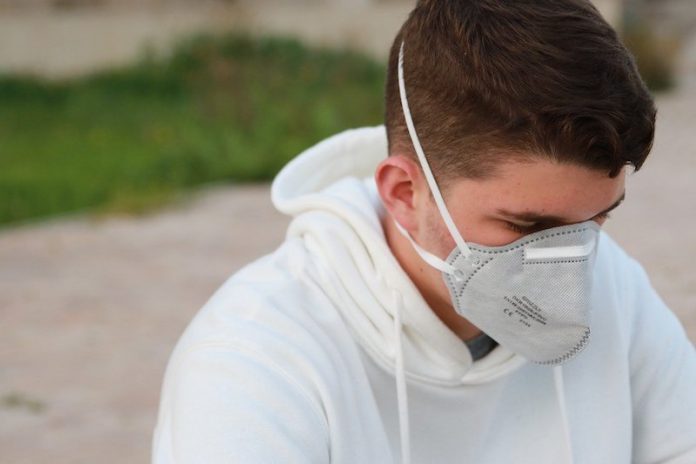
In a new study, researchers found that people living in the United States who believe, or know, they are COVID-19 positive are more likely to lie about their physical distancing practices when compared to people who believe they are free of the virus.
Although rates of lie-telling are fairly high, concealment drops in older populations and among those who are community-oriented.
This study highlights the difficulties in trying to accurately track and prevent the spread of the virus.
The research was conducted by a team at Brock University.
In accurately tracking COVID experiences and COVID rates during the pandemic, scientists are relying on people honestly disclosing this information
Participating in the research were 451 adults ages 20 to 82 years living in the U.S. Most identified as having a post-secondary education.
Through an online questionnaire, the team asked participants about their physical distancing practices, COVID-19 symptoms and status, whether they’ve been instructed to quarantine, and their moral evaluations of others’ COVID-19 concealment.
Participants were asked a series of questions to determine if they had concealed any of their COVID-19 behaviors.
They also completed the Communal Orientation Scale to measure the extent to which they believe that they should help others and that others’ needs are important.
The team found 34% of COVID-19 positive participants had denied having symptoms when asked by others; 55% reported some level of concealment of their symptoms.
25% of participants reported some level of concealment of their physical distancing practices; those with COVID-19 had higher physical distancing concealment.
53% of COVID-19 positive participants denied needing to quarantine when asked by others.
Those who concealed their own COVID-19 status and behaviors were less critical of others for doing so.
Females were more readily disclosing health symptoms during this pandemic compared to males
Older adults and those who scored higher on the Communal Orientation Scale were more honest about their COVID-19 status and behaviors.
The team says people may tell “health-related lies” such as what the research has uncovered to avoid stigma, judgment, and social repercussions, especially if they haven’t followed COVID-19 protocols.
They hope the research will lead to discussions and programs that will support people in disclosing their sensitive health information and overcoming anxieties in doing so.
This could extend beyond COVID-19 to other physical and mental health conditions.
One author of the study is Associate Professor of Psychology Angela Evans.
The study is published in the Journal of Health Psychology.
Copyright © 2020 Knowridge Science Report. All rights reserved.



